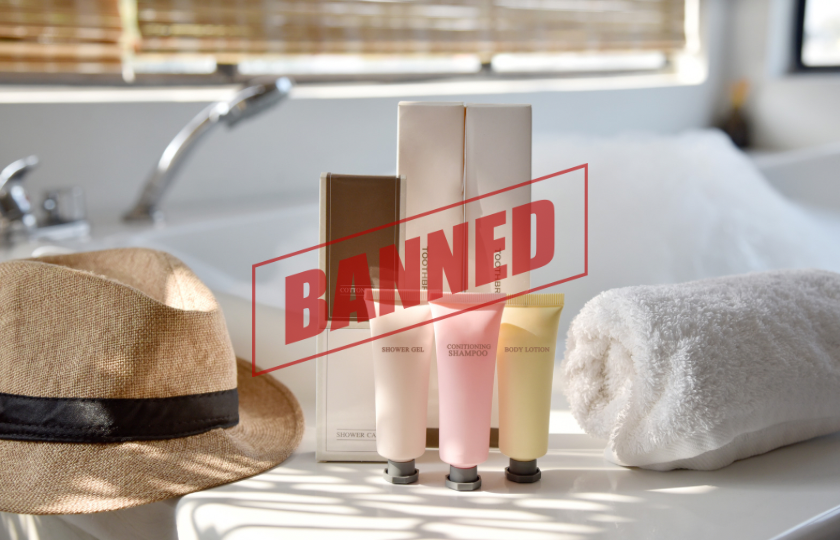If you’re a traveller – frequent or not – you may get excited about the complimentary amenities from hotels. Lotions, bath soaps, shampoos, and – if you’re lucky enough (or conveniently rich) – sometimes even give out miniature bottles of perfumes.
Unfortunately, the hotel industry produces an average of 289,700 tonnes of waste globally each year, including 79,000 tonnes of food waste. The most prevalent types of waste in hotels include packaging and amenity containers, along with wastewater from toilets, kitchens and laundries.
In Taiwan, the Environmental Protection Administration (EPA) recently released a draft bill prohibiting hotels from using disposable amenities beginning in July.
The draft bill is to implement stipulations of Article 21 of the Waste Disposal Act, stating: “For those articles or the packaging and containers thereof for which there is a concern of serious pollution to the environment, the central competent authority may officially announce the prohibition of the use or the restriction of manufacturing, import, sales and use.
“Lotions, gels and other liquid products in containers of up to 180ml; personal hygiene products, including combs, toothbrushes, razors and shower caps; and disposable slippers [are] to be restricted.”
During the first phase, hoteliers would be asked not to offer disposable items such as toothbrushes, razors, and travel-sized bottles of shampoo and body wash in rooms and only provide them upon the guest’s request.
The second phase would require that amenities are not provided for free, requiring guests to purchase them instead.
“We hope people can cultivate the habit of bringing their toiletries with them when they travel and reuse containers whenever possible,” said EPA.
Taiwan Tourist Hotel Association executive director Su Shen-tung told the Taipei Times that not providing toiletry items to guests would result in disputes with some guests who are used to getting them for free.
“Most guests would simply pay for the items to avoid inconvenience, meaning that the policy would not have much effect on environmental problems,” added Shen-tung.
“People are likely to pay that just to avoid the trouble of bringing items with them.”
The EPA said the public could view the bill online and provide feedback during the next 60 days.



